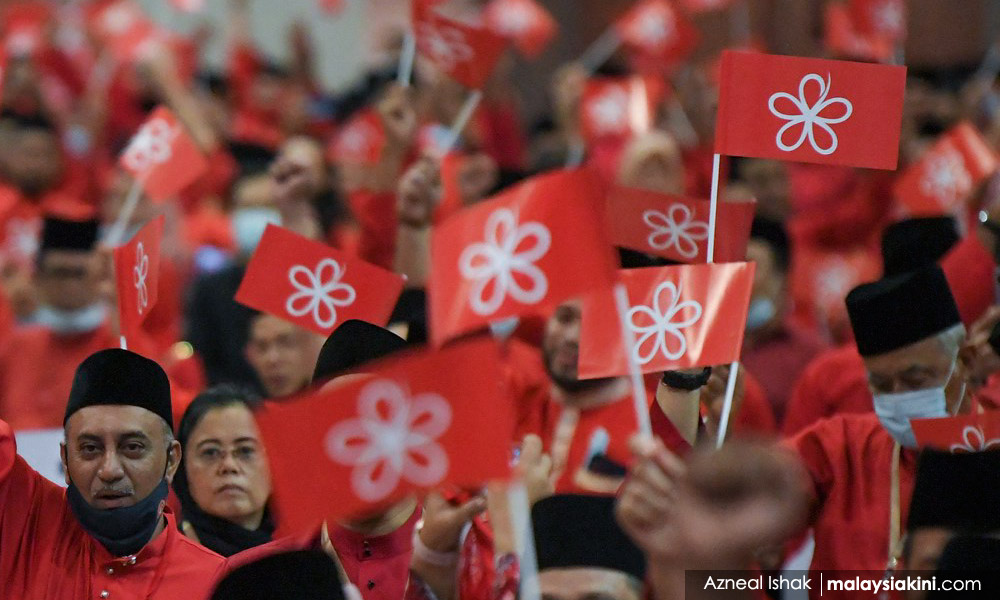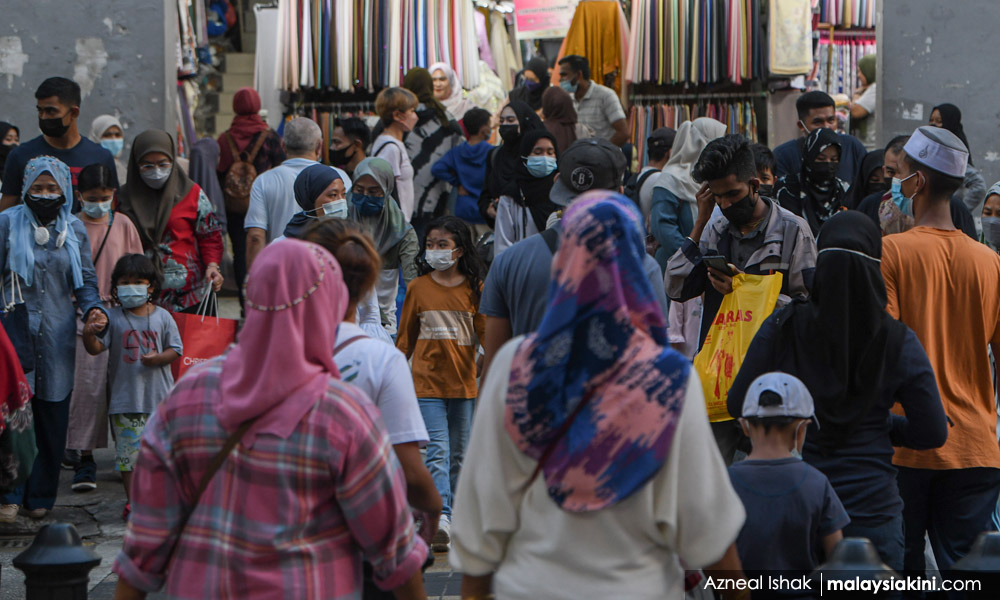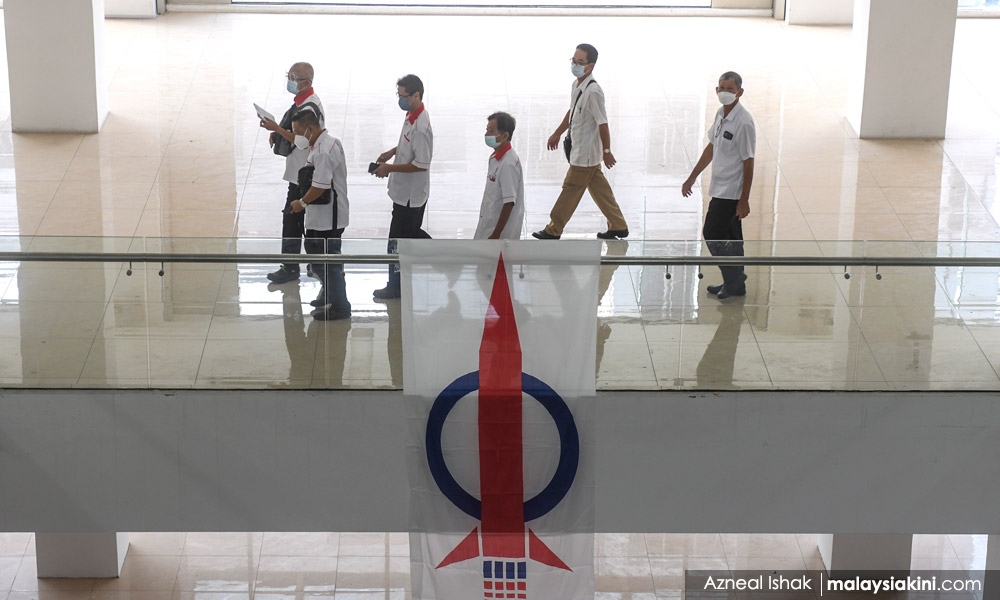As a young Malay, the question often crops up - do I think there is still a place for the prejudiced politics of Umno, PAS, etc.
I believe we are past needing/having to use racial relations as a component in Malaysia’s governance. Diverse as Malaysia is, focusing on inclusion must be the next step forward; racial and religious identities should not define one’s status in society.
This prevalent divisive approach in politics has only led to racial tensions, disharmony, and worse, racism. In fact, I have observed that racism is no longer just an issue, but a major parasite present in politics and other aspects of our life.
Prejudiced politics, in relation to racial-religious sentiments, are mere tools of divide and conquer for political expediency. Playing around with the power of the majority will always be an attractive and easy option for parties to gain more voters and supporters.
But enough is enough.
To move away from prejudiced politics to fair politics, inclusive practices continue to play an important role, which includes representation, participation, implementation and development of laws, regulations, and policies that reflect the best interests of all stakeholders involved and further from racial and religious status.
It is undeniable that it will take years to achieve this. That does not, however, mean that we have not moved in that direction and shouldn’t keep trying to achieve more.

Several approaches that can be done from a grassroots level to an institutional level include recognising the challenge of racial-religious minorities in prejudiced politics and fighting for socio-political justice at every intersection.
We all need to pressure the government to respect human rights on local issues that affect relations other than Malay-Muslim issues, such as Orang Asli land rights and language preservation.
Post-Sheraton Move dynamics
From the transition of BN to the fall of Pakatan Harapan and to the current hybrid administration, there is a pattern of trying to highlight the failure of a multiracial coalition and putting Malay-Muslim ideology on the pedestal - at least among the dominant Malay voter base.
I believe the main reason why a clearly compromised Umno is able to make a comeback reflects how others were disillusioned by the governance of other parties that were seen as mainly trying to topple the Malay-first ideology rather than focusing on securing the welfare and wellbeing of minorities.

Similarly with PAS, being a part of the Perikatan Nasional (PN) coalition, they are able to reap the benefits of being a majority in the Malay heartland.
This is because Muslims feel a sense of security as PAS ensures that Islam’s position as the official religion of Malaysia is not challenged, which is of course silly as no one is challenging it and the Muslim demographic is increasing all the time.
Being in government also means that PAS has the support of the Federal Constitution to uphold the status of the bumiputera, which forcibly links a Malay’s racial identity with the Islamic religion.
Following the Sheraton coup, multiracial parties, such as PKR, are not necessarily making a retreat but fail to show good leadership through their governance.
With the recent sacking of 11,000 members from PKR for being aligned to former deputy president Azmin Ali, this decision displays unstable and distrustful commitment towards members even within the party.
This further adds to the people’s lack of confidence in the party that may have the right ideological and racial mix but lacks the correct personalities to see it through.
Similarly, DAP’s recent party election saw only one Malay elected to a CEC of 30, undermining their attempt to portray a Malaysian Malaysia philosophy.

Humans rights just lip service
It is also notable just how polarised the current situation is. Human rights issues involving racial and religious minorities appear to be on the rise.
Some examples are: Indians make up a disproportionately high percentage nationwide for being victims of custodial deaths; a restriction on the propagation of non-Islamic religions; a perception of one-sidedness when it comes to unilateral conversion; and greater limitations on liquor sales.
The recent cases of a struggling Hindu-Chinese mother getting custody over her children after they were converted into Islam and the non-ratification of the International Convention on the Elimination of All Forms of Racial Discrimination (Icerd) are among that rattle.
This is not to say that Malay Muslims are not negatively affected as well. Just a few days ago before Ramadan started, Penang implemented a policy whereby Muslims that are caught not fasting could face legal action.
Don’t compromise with racism
In navigating identity politics as a Malay within a prejudiced political climate in Malaysia, I will not compromise my beliefs and aim of achieving a true racially diverse and accepting society.
My religious duties, which are interconnected to my identity as a Malay, are no one’s responsibility to bear or judge other than myself. The politics of my identity speaks further than my status as a Malay Muslim, and it transcends to even a greater extent for other racial and religious relations in Malaysia.
Furthermore, being a young Malay surrounded and supported by affirmative action policies and positive discrimination simply because my status is enshrined within the Federal Constitution does not seem just to me.
It is time we revisit what the constitution truly means to us as Malaysians and how to move forward in being more inclusive. If it means that we have to start by challenging the power of parties and governments that perpetuate prejudiced politics, then it is a paradigm that we should recognise.
Let’s put an end to parties with a limited membership based on identity. - Mkini
UNGKU ‘ARIFFIN is a youth social and political advocate.
The views expressed here are those of the author/contributor and do not necessarily represent the views of MMKtT.




No comments:
Post a Comment
Note: Only a member of this blog may post a comment.